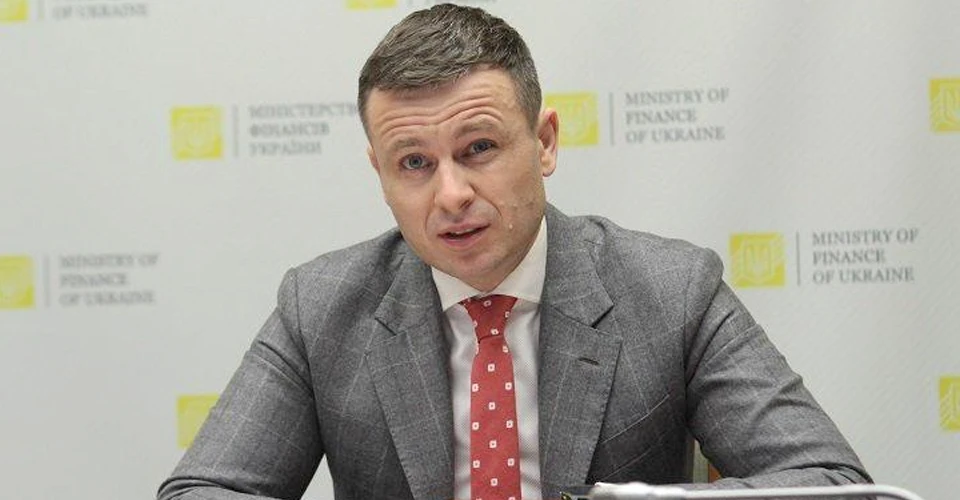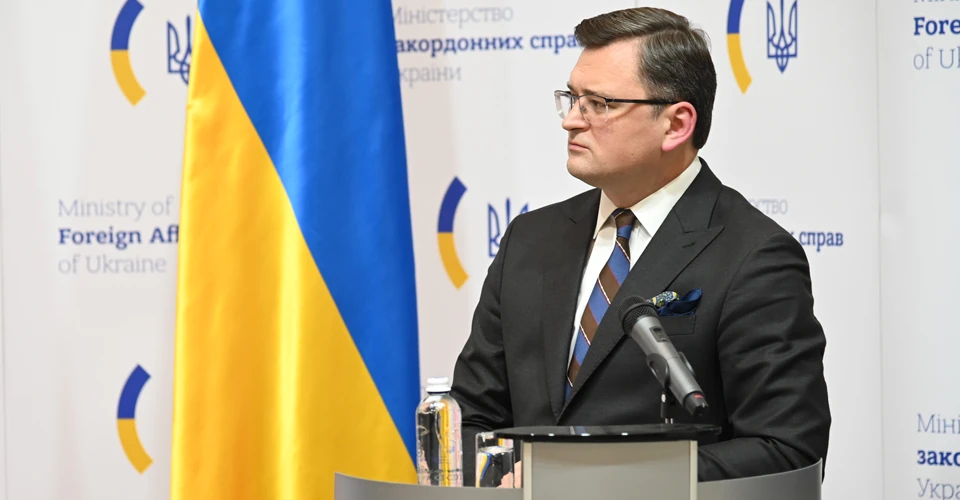
How delay in international aid will affect Ukrainians
For a long time, Ukraine had hoped that the new year 2024 would be greeted with the budget and defence sector financing agreed upon by international partners. However, this did not happen. Key partner countries have once again declared their unwavering support in the war against Russia, but the most important decisions have not yet been made
And if international aid is delayed, millions of Ukrainian officials will have to work without money. At the same time, Social Policy Minister Oksana Zholnovych promises that there will be no problems with pensions.
Does Ukraine have the safety margin to hold out for some time without external funding? How critical is the situation? What are the chances of getting not only words of support, but a decision to allocate funds? We explain.
What the text is about:
- How much money did the budget receive from partners in 2023?
- How much money does Ukraine need from partners in 2024?
- How will the delay in international aid affect the economy?
- Are challenges being postponed, or why are all economists talking about risks in 2025?
How much money did the budget receive from partners in 2023?
Since the beginning of Russia's full-scale invasion, Ukrainian budget expenditures on the social sphere have been almost entirely financed by international aid. In general, this source has become the main one for filling the state treasury.
As of 15 December, the state budget for 2023 received almost $38.5 billion in external financing, according to the Ministry of Finance. This is more than last year, when just over $31 billion was received.
Overall, the amount of foreign aid to Ukraine is expected to reach about $43 billion in 2023.
This year, the EU became the largest donor, with $17.9 billion, compared to almost $8 billion in 2022. Last year, the largest amount came from the United States - just under $12 billion, and this year the US financed Ukraine's budget by $10.9 billion. It is worth noting that these figures do not include military aid, but rather budget financing.
In addition to foreign aid, the state budget receives funds from other sources, such as domestic borrowing (domestic government bonds), taxes, and other revenues. The money generated domestically can be allocated to the military, while international aid funds mainly finance social budget items.
How much money does Ukraine need from partners in 2024?
In the new year, Ukraine is unlikely to be able to count on such generous revenues as in the current year. According to various estimates, next year's foreign aid could range from $30 billion to $40 billion.
"$40 billion is a 'comfortable' figure, it does not raise any concerns at all. $30 billion may be an unpleasant amount, but it does not threaten macro-financial stability and will allow us to get through this year with some 'corrective' decisions. But conditional $25 billion and below is a direct threat to macrofinancial stability," said economist Oleksiy Blinov, former head of the analytical department at Sense Bank.
This uncertainty was caused by unfulfilled hopes that the United States would vote on a $60bn aid package for Ukraine before Christmas or at least before the New Year. In addition, the European Union has prepared a decision on €50 billion in aid until 2027.
However, it is being blocked by Hungary. Thus, Kyiv will have to face another year of war without a clear understanding of the figures for future support. And this is bad news.
The good news is that Ukraine has successfully passed the review of the International Monetary Fund loan. This is an important signal to key partners. In addition, neither the EU nor the United States are discussing whether or not to provide assistance to Ukraine. The only question is the amount and timeliness of the aid, government officials say.
The Ministry of Finance expects external financing of $37 billion in 2024, although previously this amount was slightly higher - $41 billion.
Fitch sees a decrease in international aid next year, but only slightly.
"Despite political risks to the approval of the promised funding, budgetary aid for 2024 will be only slightly lower than the $43bn planned for 2023," Fitch said.
ICU Group forecasters also do not expect a significant reduction in aid next year. Thus, the NBU will continue to be able to control the foreign exchange market. Although economists expect a gradual devaluation of the hryvnia, they predict that the exchange rate will be around UAH 41 per dollar by the end of 2024.
"We have good chances that 2024 will be relatively calm in macroeconomic terms. We are not discussing whether GDP will grow or fall next year. We are discussing whether the economy will grow by 3% or 5%," says Vitaliy Vavryshchuk, Head of Macroeconomic Research at ICU Group.
How will the delay in international aid affect the economy?
So if decisions to allocate funds to Ukraine do come through, albeit with a certain delay, what's the problem? The problem is the timeliness, or in the language of financiers, the rhythmicity of the proceeds.
And it becomes urgent for the Ukrainian budget as early as January 2024. This was emphasised by Finance Minister Serhii Marchenko.

Serhii Marchenko, Minister of Finance of Ukraine
Due to delays in financing, difficulties with the execution of expenditures may begin in the first months of the new year.
"Unfortunately, the decisions made by our partners in January and February are not enough for us to cope on our own. That is why we are currently using the Plan B mechanism," the Minister said.
Plan B is to maximise domestic sources of budget financing. For example, the Ministry of Finance can "negotiate" with state-owned companies to pay dividends to the state earlier than usual. Raise more funds through domestic loans. Or use the mechanism of good old-fashioned money printing.
"According to our estimates, the government has a margin of safety to get through the uncertainty of January and February. Plus, Japan, Norway and a number of other countries helped," says Oleksandra Betliy, a leading expert at the Institute for Economic Research and Policy Consulting.
In general, the Ministry is confident that the needs of the next year will be met thanks to external assistance. The only question is the timeliness of the funds, Marchenko says. And whether the needs will not increase.
"The biggest uncertainty for us is in the security and defence sector. We cannot know in advance at what point there will be a shortage of something. There are too many questions about the effectiveness of the use of funds in this particular area," the head of the Ministry of Finance explained.
It should be noted that in 2023, the Parliament revised the law on the state budget three times due to the need to increase spending on the security and defence sector.

Oleksandra Betliy, expert at the Institute for Economic Research and Policy Consulting
Challenges are postponed, or why do all economists talk about risks in 2025?
Both government officials and experts agree that the biggest challenges for Ukraine in terms of financing are in 2025. While next year is more or less clear, with agreements and an IMF programme in place, the uncertainty about 2025 is total.
This is primarily due to the fact that the United States will hold presidential elections next year. As a result, long-term agreements are virtually impossible.
In a sense, the EU's Ukraine Facility funding programme, which provides €50 billion for several years until 2027, could become a lifeline for Ukraine. This programme focuses on budget support. Funds should come "in exchange" for reforms.
So far, it has been blocked by Hungary, but if approved, it could fill the Ukrainian treasury with €18 billion next year.
Although diplomats have managed to persuade Hungarian leader Viktor Orban not to block the decision to start Ukraine's EU accession talks, he continues to make it difficult to make a decision on financial assistance.
The government reassures that there are high chances that the programme will be approved in January.
"The signal coming from Brussels was that Orban would agree to provide financial assistance, but would block the opening of negotiations. But it turned out the other way round. The only decision that cannot be circumvented and adopted by non-consensus is the decision on negotiations. And decisions about money can be made without consensus. When he finally agreed to open negotiations, he returned to the issue of money and said that more time was needed," says Foreign Minister Dmytro Kuleba.
"The issue of money is not a vetoed one by Viktor Orban. The discussion on money has been extended for a month to avoid Viktor Orban's veto," Kuleba said.

The government emphasises that it is counting on the Ukraine Facility programme as long-term money that can replace US funding if necessary.
"Throughout the year, we will work with partners on how to secure funding in 2025. It is not easy, because electoral cycles shift the focus from Ukraine to other issues, including domestic problems. But we are working. So there are hopes that we will be able to replace some sources with others," said Sergii Marchenko.
However, even after receiving the programme, Ukraine will have to keep up the pace of reforms, even despite the war. Just like the IMF programme, the Ukraine Facility will require changes from Ukraine.
- News













































